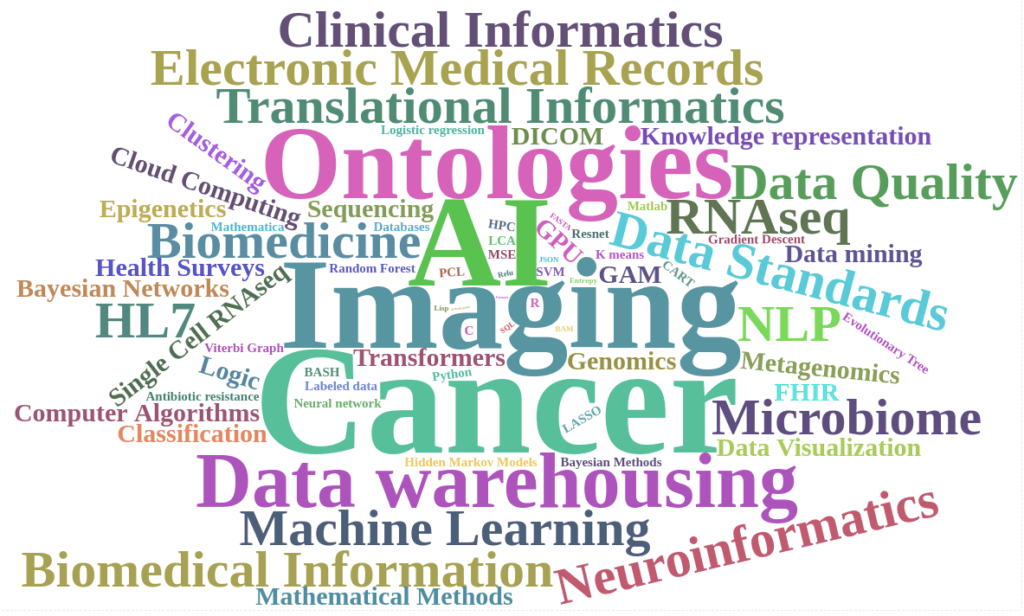Graduate Degree Programs in Biomedical Informatics
We offer three graduate degrees: Doctorate of Philosophy, Master of Science and Professional Master’s — and a Graduate Certificate Program in Biomedical Informatics.
All our programs are approved by the Arkansas Department of Higher Education.
Our vision is to build a nationally recognized graduate program in biomedical informatics. We will do so by first focusing on understanding and meeting the significant biomedical informatics workforce needs of our state.
As the state’s only academic medical center, Prior said, UAMS has an obligation to serve Arkansas in this way. Meeting this goal will forge a strong, biomedical informatics graduate program that will contribute to meeting state and national workforce needs across sub-areas of biomedical informatics.
Dr. Fred Prior, Chair of the Department of Biomedical Informatics, College of Medicine.

